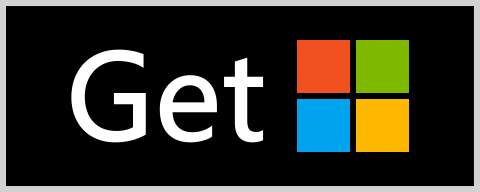The Business Of Building An Email App
Independent mail apps are a labor of love and finding successful business models for innovative and hardworking productivity apps is a problem.
In the era of “The Free Machine,” how can free email applications survive?
There are those who believe that ads are the way to go, but these are invasive and are attempting to change your behavior.
Edison Mail believes that a research backed business model is a viable and privacy focused option.
Email was in the news again last week after a popular mail app suddenly changed its pricing model from a one-time fee to an additional monthly subscription in order to use features that had previously been included with the single fee. The abrupt nature of these additional costs resulted in a backlash from the company’s consumer customers.
The situation highlights a major problem that email apps today face — surviving as a company in the era of “The Free Machine.”
Free vs. Paid Email — which do you prefer?
The path to long term viability for email apps today is riddled with challenges, and finding the right business model is one of the biggest. Several mail apps have folded in the last ten years — remember Sparrow, Mailbox, Alto Mail, Trove, and Astro Mail? Newton almost joined the list but was revived at the last moment after its acquisition by Andy Rubin’s company, Essential. Of course Google’s Inbox was not in need of a business model, but their teams did not want to support two different apps and its sunset also caused heartburn for many that is still being felt today.
It’s a sobering trend that makes you wonder how another newer mail app found confidence to charge $30 per month — for the wealthy email connoisseurs perhaps who are among a small margin of consumers that can afford such a disposable luxury.
When a mail app shuts down, the consumer users relying on their service to manage their everyday online identity are then left stranded to find another mailbox to call home — a pain point that can have real negative impact when you consider the copious amounts of information being managed in your inbox as well as having to re-learn the nuances of a new app.
But how can we expect email apps that must make money to survive as a viable business, pay their staff, and innovate with new features to stay relevant to their users, to compete with giant email providers that lead the space based on ad-based businesses and offer their email products, for free?
Most consumers today have indicated via their lack of use of paid email apps that they are not willing to pay for a utility as ubiquitous as email. Consumers have possibly even been subconsciously trained by these large email providers to expect cutting edge productivity products that one uses for hours everyday, for free!
The Privacy Lens On Today’s Business Models
Now more than ever before, companies are learning that embedding consumer privacy protections into their businesses is as critically, if not equally, important as the right business model. So what does putting a privacy lens on the business models underpinning most email apps and services look like today?
For paid email products, the privacy lens reveals that a company will always try its best to serve their paid user’s needs first — this, of course, includes offering the features they want the most. As we saw recently with the viral news about a popular paid email app seeing backlash after offering read receipt email tracking as a feature, this approach can backfire if such features do not respect the boundaries that the greater good of consumer privacy demands for a larger set of constituents.
For free, ad-based email products or businesses, the privacy lens shows that a company will then need to prioritize serving ads in any way possible to become profitable. Part of this includes forcing consumers to endure extremely annoying and at times creepy ads that follow them around everywhere they go on the internet. Would this tradeoff be acceptable in person? Imagine a company following you from room to room in your home or driving behind you constantly around town — the answer is no.
Privacy advocates have recently said consumer’s personal data from their use of email should not be used to target them for ads. Rightly so, as mail providers whose main business is driven by advertisements requires that they know as much personal information as possible about consumers to target them successfully. Afterall, how else will they know where and when to serve an ad to get the most clicks? This is an alarming truth about ad-based businesses when you consider the more extreme methods that companies are investing in — from using consumers DNA to personalize sales to serving ads based on predicting consumer moods.
Furthermore, the purpose of the ads is actually to influence and ultimately change consumer’s ‘normal’ behavior and to make consumers engage with their platform with always increasing cadence. For example, if you use an ad-based and free browser, the company providing it hopes you will also use their ‘free’ search and ‘click’ on a lot of sponsored ads. Or if you use a crowdsourced product, the company’s business model relies on you generating a lot of content and pinning more pictures so they can have more eyeballs and data to drive their business.
One could, and should, ask: what other ways are there for a free email product developer to make money so that it can be a viable and lasting company that consumers can rely on — an email app that continually innovates in order to be the best email experience ongoing? What does that privacy lens look like?
Edison Mail believes our researched backed business model is an option that solves these problems. Our company set out to provide a free email app alternative, so consumers can have a choice when it comes to which email app they use — so they’re not restricted to only large ad-based mail providers.
Our business model is intentionally NOT ad-based, so there is no need for us to target ads at our consumers that use our free apps and we do NOT try to influence their ‘normal’ behavior — for example we do not attempt to influence their purchase decisions — while using our Edison Mail app or with any other products from our company.
Our research model also does not demand our company grow at the extreme rate required for ad-based businesses to succeed, we do not need the eyeballs or clicks to grow. Depending on the research — in our case, an e-commerce trends focus — our mail app can actually be a viable business without identifying any person individually, tracking an individual’s behavior, or influencing any of their behaviors. In fact, our research aims to observe cohorts of de-identified consumer’s purchase transactions without bias — any influence would actually work against what we are trying to observe to facilitate learning.
The privacy lens shows that with our research backed model, we are preserving the anonymity of participants in our research while delivering an innovative and free email solution. Data at the source of our research is de-identified and consumed in an aggregate form. Additionally, we make certain our analyses are statistically valid. We normalize against the longest running and most respected research authority, the U.S. Census.
Are there other business models for email to stay free, viable, and respectful to privacy? Probably. It’s up to everyone to explore the possibilities to find them. The team at Edison Mail believes that creating choice for consumers is an important mission. We have always been open about our business model, allow our consumers to opt-out easily, and want our consumers to understand our commitment to privacy.
Download the Edison Mail App Today
Learn more about how you can use Edison Mail for iOS, Mac, and Android to their fullest potential. Reduce spam, and access your favorite email services like Gmail, Yahoo, Microsoft Exchange, Comcast, and more in a clean unified inbox.






